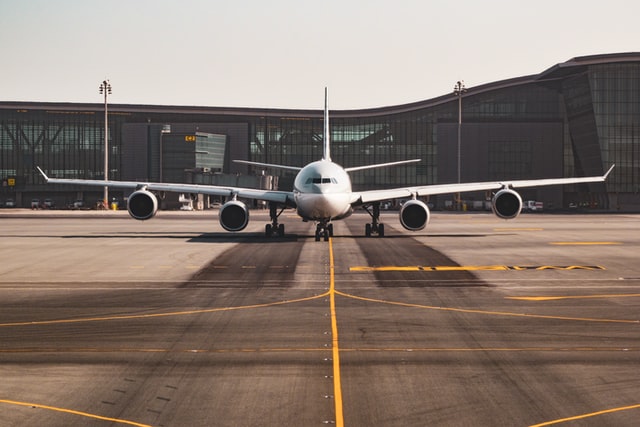

Brazilian President signs law to help the aviation industry
Rules arising from a previous provisional presidential decree No. 925 maintained most of the changes introduced by the National Congress
Subjects
Law No. 14,034, of August 5, 2020, was published on August 6, providing for emergency measures regarding Brazilian civil aviation, and aiming to reduce the effects caused by the coronavirus pandemic. The law arises from a previous provisional presidential decree (PPD), which became Bill No. 23/2020 before its conversion into law.
The analysis of the PPD and the amendments proposed by the bill can be found by clicking on this link.
The President signed most of the measures brought by the bill but vetoed some proposals according to opinions stated by the Ministries of Economy, Regional Development, and Infrastructure.
According to our Aviation partner, Adriana Simões, the new law approved the necessary measures for sustainable development of the sector. “The legislation promotes a more favorable environment for the growth of new business in the country with the limitation of the carriers’ liability in case of force majeure and regulation of compensation for emotional distress, avoiding excessive judicialization, and extinction of the Additional Tariff for International Boarding, which will decrease the cost of tickets for international flights departing from Brazil,” Adriana points out.
Check out the existing vetoes and their motivations:
Airport Concessionaires and Infraero
To assist airport concessionaires, the bill established conditions for reprogramming the payment of contributions under concessions, such as a review of the payment of the so-called fixed contributions, that is, installments of the pre-determined amount and part of the total amount of the contribution that is still due to the granting authority.
Since it was understood that the mere postponement of payments was an insufficient measure to reduce the financial effects caused by the decrease in demand, legislators proposed new parameters for the amount of the installments to be renegotiated, observing the original criteria established. An amendment was also added to allow the granting authority to replace the fixed contribution with the variable one, as long as the original net present value is maintained.
However, such replacement was vetoed under the justification that its operationalization would remain impaired, due to the high costs involved in its implementation, as the Government stated. “The veto highlighted that the replacement, despite maintaining the original net present value of the contracts, would be difficult to put into operation and would depend on high regulatory costs for its implementation, which would intensify the tax impact for the Union,” analyzes Adriana Simões.
The Brazilian federal government understood that the approved measures and the already existing ones, combined with the economic-financial rebalancing of the concessions under discussion with the National Civil Aviation Agency, would suffice to promote the balance for such agreements.
In addition, the bill determined that the budgetary and financial effects of the amendments and the expected reprogramming would be compensated by the total or partial return of resources that were transferred to the Brazilian Company of Airport Infrastructure (Infraero) for contribution to the capital of airport concessionaires, as well as for the cancellation of appropriations to be used for the same purpose.
This provision aimed at establishing a compensation to soften the effects of the crisis and was vetoed for not complying with the provisions of the Brazilian Budget Guidelines Law, which provides that compensation measures will only be considered if they involve an increase in revenue, resulting from the increase in tax rates, expansion of the tax base, and increase or creation of taxes.
Aeronauts and Air Service Employees
Seeking to assist aeronauts and air service employees affected by the total suspension of payment or reduction in salary due to the coronavirus pandemic, the bill proposed the allowance to withdrawal from the Guarantee Fund for Length of Service (Fundo de Garantia do Tempo de Serviço – FGTS) account up to the limit of the existing. The measure was positively seen by the sector and intended to partially compensate for the salary reductions suffered.
The bill brought a limit of six installments of BRL 1,045 in cases of salary reduction and BRL 3,135 in cases of complete suspension without payment, and the allowance would apply only to account holders working at companies providing regular air transportation services.
However, despite the understanding that the measure is meritorious and would benefit the aeronauts and air service employees, the veto stated that the allowance would cause a possible decapitalization of the FGTS, in such a way as to jeopardize the fund’s sustainability and to impact the new investments in housing, basic sanitation, and urban infrastructure – some of the sectors to which the FGTS resources are directed.
It was also pointed out that the measure would only benefit a certain category of workers to the detriment of workers in other sectors (regardless of the degree of impact suffered).
Our partner Adriana Simões remarks that the availability of the FGTS for aeronauts and air service employees had been celebrated by the industry at the time of approval by the National Congress. “The FGTS was expected because it would partially compensate the sector’s salary reductions”.
It is worth mentioning that the vetoes must be considered by the National Congress in a joint session within thirty days of its receipt. Deputies and senators may, by an absolute majority of their votes, decide to reject the veto and maintain the originally proposed wording.
To learn more about the measures to assist the air sector, contact the partners of the Mattos Filho Aviation and Infrastructure and Energy practice areas.




